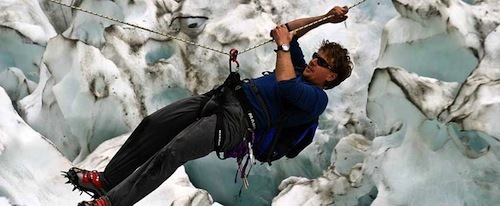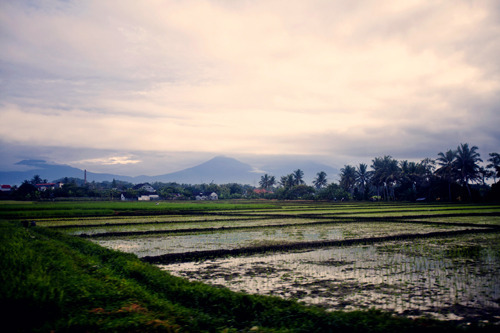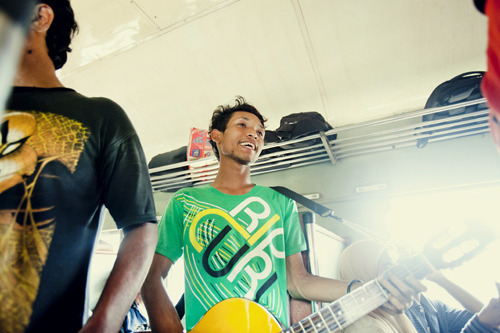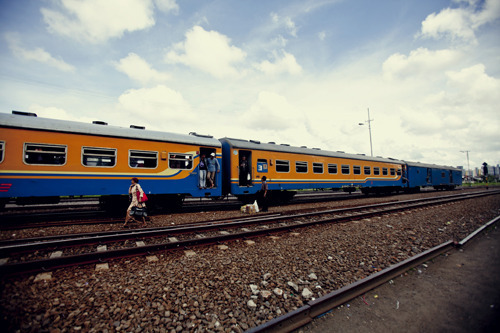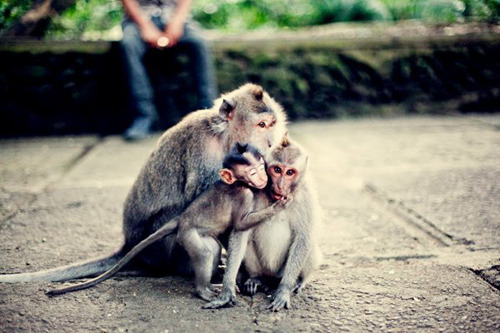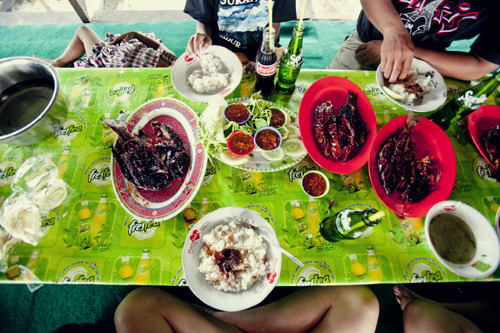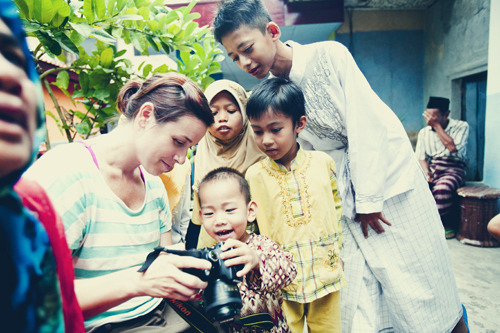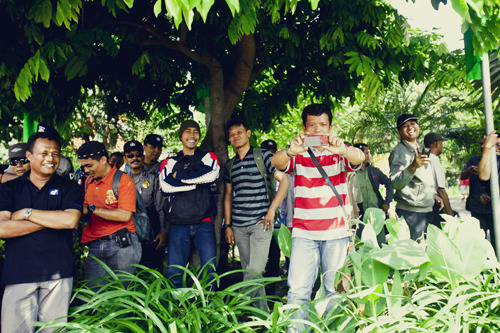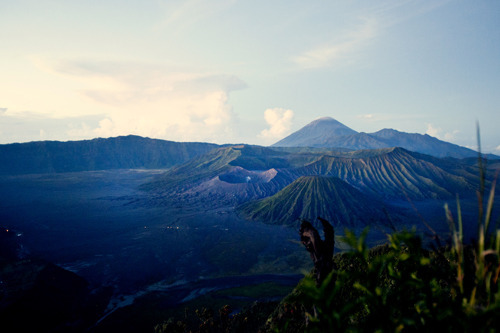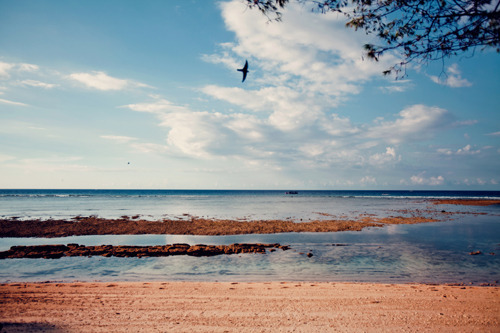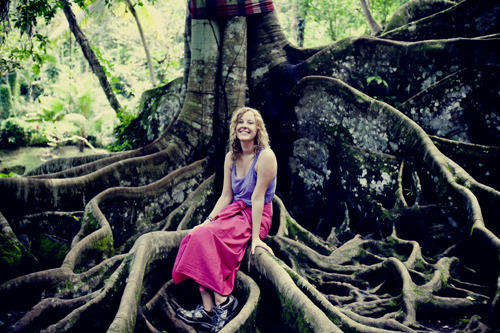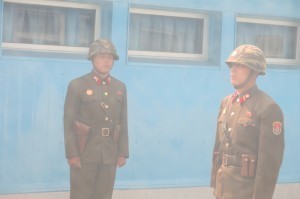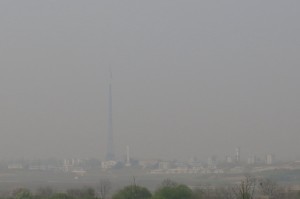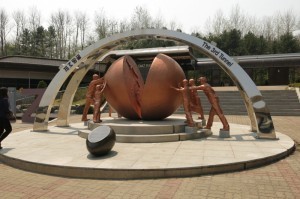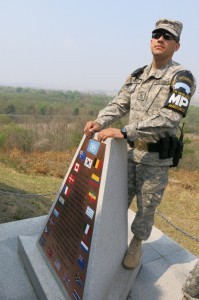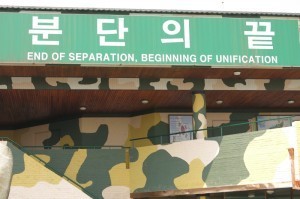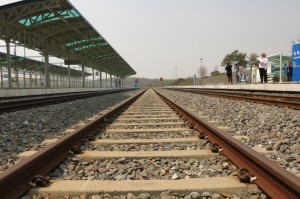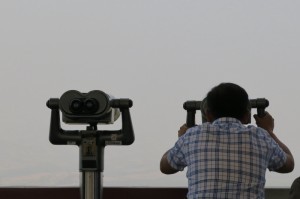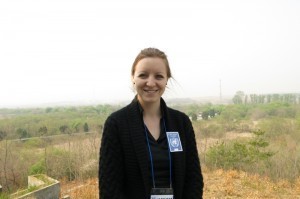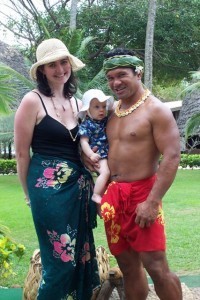Rolf Potts's Blog, page 61
May 26, 2013
Difficulty of access does not always confer adequacy of perception
Vagablogging :: Rolf Potts Vagabonding Blog
“To lament that the packaged tour, like the photograph, cheapens and degrades by making all places easy of access, is to miss most of the game. It is to make value judgments with fixed reference to the fragmentary perspective of literary culture. It is the same position that considers a literary landscape as superior to a movie travelogue. For the untrained awareness, all reading and all movies, like all travel, are equally banal and unnourishing as experience. Difficulty of access does not confer adequacy of perception, though it may involve an object in an aura of pseudo-values, as with a gem, a movie star, or an old master.”
–Marshall McLuhan, Understanding Media: The Extensions of Man (1964)
(1964)
Original article can be found here: Difficulty of access does not always confer adequacy of perception
May 23, 2013
Off the beaten-path magic
Vagablogging :: Rolf Potts Vagabonding Blog
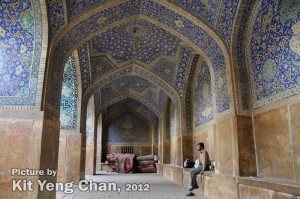
The following story happened too many times along the back roads of deep Asia. And today, it got me inspired…
They offered me a cup full of hot water and they poured some tea leaves in there, too. It was too hot to handle so I put it down first while I kept observing the surroundings; so many people living in such a small room, kind of bound to it, but blessed by the unique rural environment of families providing for each other. I emptied my glass slowly as it was very hot, as I felt warm eyes all over me and my friends. When it was time to go, the family asked me to take a picture with them and we posed in front of the doorstep, smiling. When I look back at that picture today, I can’t help but laugh looking at the crown of tiny limbs creating a forest of motion behind me. Those naughty kids…
Then, it was time to go back on the road. We passed next to a column of women dressed in traditional clothing and head scarves. They transported wooden baskets full of weeds or small stones on their backs. Observing them, I tried to figure out if in my home country of Italy such kind of menial work is still conducted the way those women did. I quickly came to the conclusion that no, it belongs to the past. Or to an undefined dimension that makes some parts of Asia places where a bad wizard has cast a strong spell, and time just slipped down the crack in between the third and a fourth, incredible dimension.
In these moments, you feel lucky to be able to witness a relic of a world that is gradually losing its very own differences.
Please, if you go to such places, try to preserve the spell. Or just don’t go. It would be too sad for me to return one day, and see begging hands, instead of friendly locals willing to share a little part of their world with me, the incautious foreigner that just stumbled in their world.
Original article can be found here: Off the beaten-path magic
May 21, 2013
Ellis Emmett: The nine most important things in life
Vagablogging :: Rolf Potts Vagabonding Blog
The first things you notice about Ellis Emmett are his piercing blue eyes, the source of his deep, rolling laugh. This is a guy who loves life, and lives large; that much is clear from the moment he shakes your hand. He’s a builder, a farmer, an expert white water rafter, a mountain climber, an avid traveler, a photographer, a writer, and co-host of the fantastic SCUBA & adventure documentary series: Descending, which has been nominated for awards in Canada. He’s also a husband, a father, a mentor and a guy who dedicates a great deal of his life and efforts to inspiring others to “get off their butts and live their dreams.”
We talked about a lot of things while feeding his alpacas and rolling my kids down his back hill in the big blue barrels that he uses on rafting trips to store gear when there aren’t little boys who want to use them as adventure vehicles. We talked through mouthfuls of red curry with chickpeas that my kids said tasted like Thailand but reminded them of their favourite restaurant in Guatemala. We laughed in front of his enormous stone fireplace and swapped travel stories. This is a guy who lives in our world and who “gets it” in ways few people do.
Ellis is positively dripping with pearls of wisdom. Here is a short excerpt from our discussions on what he sees as being the most important aspects of life:
The nine things that I believe are important in life:
Dream- have a dream. Dreams are so important. Without a dream you have nothing to strive for every day becomes the same.
Freedom- sometimes in order to have freedom you have to make a commitment not to have freedom for a certain time to achieve what you want to. Freedom has two parts: time and money. If you have enough time and enough money to do whatever you want, whenever you want to, then you have freedom. You don’t have to have a lot of money, to be free. You can always scale down so that you need less, instead of continually scaling up
Growth- It’s important to be in a constant state of growth, to be continually evolving and learning in some way. If you’re not growing, you’re stagnating. To avoid stagnation, travel, explore, learn.
Physical- A healthy body and healthy mind go hand in hand. If you are not proud of yourself then how can you expect anyone else to treat you with respect? Ellis has a gym in his basement. His wife is a personal trainer. The day we’re visiting, his legs are killing him from a massive workout the evening before. He laughs about that as we hike up the hill from the alpaca paddock
Contribution- It’s very very important to give back. Don’t’ try to hold on to everything for yourself. It’s all part of the wheel and the process itself. In giving you open the avenue for receiving. The more you help and give to others, the more others will do the same for you.
Spirituality- This can be in any form you want it to be. Spirituality is, I believe, a sense of self and acceptance of self. As human beings we have this inherent need to have a belief, who are we, what are we why are we here, where are we going (god I feel like a school teacher now!) Maybe to put it into one word, have a grounding. If you believe in Christianity that is equally as fine as Buddhism. it doesn’t matter what it is, you just have to believe in it. For myself personally, I’m an atheist, I don’t believe in any higher power. I believe we are the higher power. I believe each person has this massive energy and power within us. I’m not saying we are all gods, no, no. but we can do more than we know we can; we can do astounding things. If you set your mind to something you can do; it doesn’t matter what it is.
Love- “Just a small one,” he jokes with sarcasm in his voice… we as human beings need love in our lives, it comes in many forms: Romantic, family and self love. But self love is probably the most important form. And this is where people make a mistake; people think, “No one loves me,” and love for themselves is overlooked. I’m not talking about self love in an egotistical sense, but it comes back to respect. if you don’t love/respect the person you are, then you can’t expect others to. It comes back to the old cliche, “You get back what you give out.” If there are particular reasons you don’t love yourself, get out there and change those things.
Passion- Passion is a lot like love, it’s one of those things that, if you don’t have it in your heart you’re half dead already. You have to have passion to get out there and live life. You have to have interests, things that drive you. If you don’t have passion, then keep trying things until you find the thing you love to do. It doesn’t matter if no one else sees it, if you feel it, go with it… you don’t have to explain it, just like love
Environment- Be very aware of your environment and its affect on you and your life. Many times it’s our environment that is holding us back, not the home you are living in. There are many things you don’t have a choice over, the family you are born into and the home you are in, but most people have more choices than they believe they do.
There are two aspects of your environment to consider:
The physical aspect: your surroundings. And the social aspect: This is even more important. Who do you hang out with? We hang out with the people we want to become. The people we hang with don’t want us to change, so they try to keep us the same. If you want to be better at something, go find the people who are doing what you want to do, find something in common and learn from them, grow from that lesson that they can teach you subliminally. If you don’t like the person you are, then look at the people in your life, the place you are living, who you are hanging out with. Maybe the first thing you should do is move, reinvent yourself in a new place, rebuild from the ground up.
Original article can be found here: Ellis Emmett: The nine most important things in life
May 19, 2013
Without travel, there would be no “us”
Vagablogging :: Rolf Potts Vagabonding Blog
“We see frightful souvenirs for sale in the Valley of the Kings, or we blanch at the ruination of Bethlehem or the Austrian Alps — and we blame it on mass travel. We prophesy dire and culturally fatal consequences. We wish, often vehemently, that every ugly tourist would stay at home in his living room by his wretched fire, and leave such noble places to their emptiness — or at least, to us. Yet what we forget is that without travel — there would be no “us.” For what is modern man, other than the consequence of movement, of migration, of wandering?”
–Simon Winchester, intro to Martin Parr’s Small World (1995)
(1995)
Original article can be found here: Without travel, there would be no “us”
May 16, 2013
Charity school project in Bodhgaya, India
Vagablogging :: Rolf Potts Vagabonding Blog
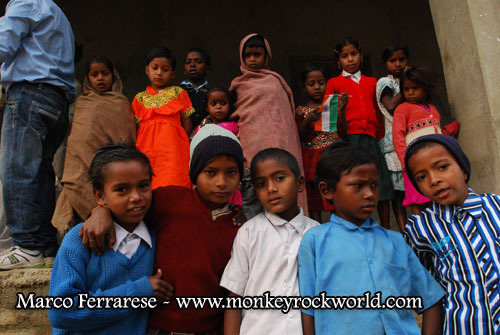
As a first stop during my “charity discovery tour” in India I visited the village of Sujata, just behind Buddhist pilgrimage center – and Tibetan refugee colony – Bodhgaya, in Bihar state. If Bodhgaya is a bit more developed, although desperately poor, Sujata represents a real Bihar’s backwater: the kind of Indian village where houses are half built, their walls covered in thick cow dung’s cakes, and most people roam jobless looking for something to do under the scorching sun.
I was a host of Dinu, a young chap I met through Couchsurfing. He has been helping a local charity school, Lord Buddha, to develop and raise the foundations of the building thanks to the offers of a few foreign contributors. Dinu is still a young student: he dedicates his time to the school project for the poor kids of the adjoining villages, and he is trying to study Chinese besides the dearth of opportunities to find updated textbooks in Bihar.
Dinu also would like to be able to build a small “Couchsurfing Hostel” where he may be able to host many people passing through Bodhgaya, giving them a chance to volunteer participating to the schools’ activities. So far, the only thing Dinu has is some free land space, and some tons of bricks generously provided by a Canadian donor. Although having a vision, Dinu lacks funds, and needs help.
This post has the sole intention to let you know Dinu’s story and open up a channel in order to contact him, if interested. If you could even send him an English-Chinese dictionary or textbooks, he would be extremely thankful. Regarding the Lord Buddha school, I had a chance to visit during India’s Independence Day 2012, as the little kids put up a parade in front of the – for the moment being – single storey school building. Parents and families from the surrounding village were all present, flags were raised, dances and songs were performed, and everyone had a very sweet and entertaining morning.
I urge people to get in touch with him, at least to give some encouragement or practical tips, as this young fellow is really dedicated and has a very good heart: you can write an email to dinusinha(at)yahoo.co.in and get in touch regarding the project, or make a donation by contacting Dinu and using Paypal.
Original article can be found here: Charity school project in Bodhgaya, India
May 15, 2013
Vagabonding Field Report: Java, Indonesia
Vagablogging :: Rolf Potts Vagabonding Blog
Cost/day: $20
What’s the strangest thing you’ve seen lately?
We were on a seven hour train ride from Banyuwangi to Surabaya, and just about every imaginable Indonesian product was being hawked on this train. Fried rice, hot soup, live music, live animals…I was thisclose to buying a bird with a 6 inch beak protruding from it’s cage, and for only $5. My friend pointed out that it would probably attack me before flying away forever, so I reluctantly passed.
Describe a typical day:
My friend Nicole and I were constantly on the go, so we would pack up and move on to the next city (from Denpasar to Jakarta in three weeks) almost every morning. We ate a lot of rice, endured staring contests/cell phone photos wherever we went, got excited every time we saw monkeys, sweat through all of our clothing, and tried to figure out how to use the shower/toilet in every new accommodation. We traveled by train, bus, motor bike, taxi, ferry, and plane. Staying cool and hydrated was a challenge, especially when you have to be mindful about showing too much skin.
Describe an interesting conversation you had with a local:
After getting off the ferry in Banyuwangi, we realized that we had no idea where to go and no one was speaking any English. We wanted to make it to Surabaya, but the train wasn’t leaving until the next morning. Covered in bug bites, soot, and sweat, we wondered around aimlessly until a very nice family decided to adopt us for the day. Hilmi and his wife and two children insisted on helping us find our way, and we wound up spending the entire day with them despite our language differences. They took us to lunch, to an internet cafe to use Google Translate, to their home, and eventually to a nearby hotel. They were Muslim, and one thing Hilmi said in English a few times was “please do not be scared of us because we are Muslim and because of terrorists.” They were some of the kindest people I’ve ever met.
What do you like about where you are? Dislike?
Indonesia has some of the most beautiful views I’ve ever seen. Volcanoes, mountains, quiet islands, clear water, ancient temples, and starry night skies. A lot of the people were very friendly. Accommodation and transportation was affordable. Dislikes: it was extremely hot and humid, which could get exhausting. Being white with blonde hair made me stick out like a sore thumb, which was awkward at times. Stomach problems were frequent. Traffic and pollution in the cities.
What new lesson did you learn?
Good people are everywhere. Taking care of the environment is beneficial to everyone. Monkeys will try to steal your hand sanitizer if you keep it in a visible pocket.
Where next?
Right now I’m in London, in two weeks Hawaii, then hopefully to Jordan! More travels here!
Original article can be found here: Vagabonding Field Report: Java, Indonesia
May 14, 2013
Vagabonding Field Report: Korea’s Demilitarized Zone (DMZ)
Vagablogging :: Rolf Potts Vagabonding Blog
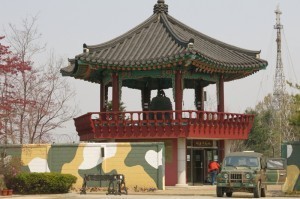
Cost/day: $100
What’s the strangest thing you’ve seen lately?
For the first time in ten months, North Korean soldiers came down from their posts and took pictures of each other right outside the conference building joining North and South–while I was getting a tour inside the building.
However high the tension between the countries, it seemed trivialized by the bright blue paint and perfectly immobile South Korean soldiers in their teal uniforms and round helmets. It felt as if we were all acting in a play, not treading one of the highest security areas in the world.
Describe a typical day:
I arrived at the United Service Organizations (USO) tour facility early in the morning for a foggy bus ride to the DMZ. Our tour group was heavily monitored via American and South Korean soldiers and CCTV. Photo taking opportunities were strictly limited, especially inside Camp Bonifas and the Joint Security Area (JSA).
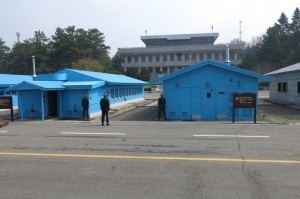
Our tour guide ushered us from area to area on a tight schedule, briefing us on the history and geography of the JSA along the way. North Korea has a propaganda village visible from the south side, its giant flag hanging from a 160 meter tall pole to mark the spot. Looking closely, we saw the village’s buildings have windows and doors painted on their exteriors.
Appearance is everything.
Since 1974, South Korea has discovered four underground tunnels dug from North Korea to Seoul. Officials think there are 16 more. The tunnels are equipped with CCTV (wired to the North) and designed to infiltrate the South with an entire infantry of soldiers in under an hour.
We were allowed to make the steep descent down the Third Tunnel. The North has painted the walls black so they can use coal mining as a rather shallow cover-up for the tunnels’ presence.
Again, appearance is everything.
Describe an interesting conversation you had with a local:
Our American military tour guide has been stationed at the DMZ for nine months. We had plenty of opportunity to ask questions about life as a soldier in this area. He told us:
1. Soldiers wear sunglasses to increase the sense of intimidation. He said that once, a Northern soldier muttered, “I kill you” during a stare-down.
2. American soldiers serve at least 12 months. They rarely get to leave Camp Bonifas, but their Korean comrades have it worse: they serve 24 months, sometimes standing in the freezing cold or miserable heat for hours at a time. Even wiping the sweat off one’s own face is considered a sign of weakness.
3. The DMZ is one of the wildest areas on the planet. Animals such as pheasants, cranes and even wolves have found a haven in this landscape so untouched by humans.
What do you like about where you are? Dislike?
At first, the North-South tension made me roll my eyes. It seemed like little more than a childhood rivalry, further egged on by the U.S.
But as the tour went on, I began feeling disappointment and sadness that a 5,000 year old culture has been divided for 60+ years now with failed efforts at reunification.
Dorasan Station is a skeleton of these efforts. For almost a year, freight trains traveled between Pyeongyang and Seoul. However, North Korea closed the border crossing in late 2008. This halted hope for a reunified Korea.
The abandoned railway station is ghostlike with its pristine entrance and empty tracks. Speeches proclaiming peace and friendship from George W. Bush and Kim Dae-Jung decorate one of the walls.
The great contradiction of the DMZ is its longing for a reunified peninsula. Despite being one of the most tensely guarded areas in the world, it still maintains glimmers of hope for its own demise. Places like “Peace Village” and “Freedom Road” populate the landscape.
Describe a challenge you faced:
Unfortunately, air visibility was pretty low at the time of my visit. Even with binoculars, it was difficult to see anything on the North side.
What new lesson did you learn?
I did my DMZ tour less than a month after Kim Jong Un revamped his threats of nuclear war at South Korea. Once the media hubbub died down, it became clear, as I suspected, that these were empty threats.
I’m registered with the U.S. Embassy and have an evacuation plan just in case war breaks out, but the business-as-usual attitude surrounding my DMZ tour confirmed that there’s no need to worry for now.
Where next?
I will visit Namhae (one of Korea’s southern islands) and do lots of hiking around Changwon, Busan and Jirisan National Park this summer. The weather is getting hot and it’s time to get outdoors!
Original article can be found here: Vagabonding Field Report: Korea’s Demilitarized Zone (DMZ)
Is travel wasted on the very young?
Vagablogging :: Rolf Potts Vagabonding Blog
This week I have a question. It’s one that’s been rolling around in several communities I participate in, and it’s one that tends to bring about heated debate. It’s also one that is very hard to separate from one’s own experience, as a child and as a parent as well. I’m open to all answers and to lively debate, so don’t be afraid to dive on into the fray.
Without further ado, here is the question:
Is travel wasted on the very young?
Before you answer, let’s define a few terms:
By “travel” I mean more than back and forth to Grandma’s house (unless Gram happens to live in Botswana, or someplace!) Travel, in this case, means outside of your usual box or culture in some way and it means more than a weekend.
“Wasted” means of no value, not helpful, or beneficial to the person.
“Very young” means under three years old, for the purpose of this debate.
So what do you think? Is travel wasted on the very young?
I’m working on a longer piece about this, that I’ll post on my blog in a few weeks, but I’ll dive in here and start the debate by throwing the short version of my position into the ring:
I do not believe travel is wasted on the very young. Just because a developing person cannot remember something does not mean that it does not have value and is not life changing for them. To suggest that we shouldn’t bother with things children cannot remember is to suggest that reading aloud to them, hugging them, playing with them, talking to them and doing little crafty projects with them is a “waste” as well, and we all know how much those activities matter over the long haul. I would argue that travel is a great benefit to the very young because it introduces much diversity to their developing brains at a point when it is easily assimilated. It’s not “wasted” it’s just very hard to measure the benefit to the developing individual.
As always, I have more to say… but this week I really want to know what you think about this, and why you think it. Tell me your stories, educate me! Let’s debate!
Original article can be found here: Is travel wasted on the very young?
May 13, 2013
Don’t fear failure
Vagablogging :: Rolf Potts Vagabonding Blog
What would you do if you were not afraid? That is the question I asked myself a few years ago when my husband and children wanted to ride their bicycles from Alaska to Argentina.
That is the question I asked myself a few years ago when my husband and children wanted to ride their bicycles from Alaska to Argentina.
And when I got really honest with myself, I had to admit that, if I wasn’t afraid, I would go with them.
The trouble was that I WAS afraid. Very afraid. Terrified, in fact.
I was afraid that the mountains would be too high, or the headwinds too strong. The cold would be too cold and the hot would be too hot.
But when I was really, really honest with myself, I realized that it wasn’t the high mountains or headwinds that I feared. I was afraid of failure.
I was afraid that I couldn’t do it and would have to come back home with my tail between my legs.
In order to avoid the agony of defeat and humiliation of admitting I couldn’t do it, I had convinced myself that it was better not to try at all. If I never set out in the first place, I would never have to crawl back home, defeated.
 But then one night I had one of those eureka moments – a moment when I realized just how silly I was being. That night, as I lay in my bed trying to sleep, I realized that if I tried – if I started pedaling – I did face the possibility of defeat. In fact, I figured there was probably a 50/50 chance I would fail.
But then one night I had one of those eureka moments – a moment when I realized just how silly I was being. That night, as I lay in my bed trying to sleep, I realized that if I tried – if I started pedaling – I did face the possibility of defeat. In fact, I figured there was probably a 50/50 chance I would fail.
But I also realized that if I never took that very first pedal stroke, I was looking at a 100% chance of failure.
When I looked at it from that perspective, I realized it made no sense not to try. I might fail – in fact, I had a very good chance of failing. But I might not fail. I might possibly succeed.
The rest, as they say, is history. Together with my husband and children, I flew to Prudhoe Bay, Alaska and we spent the next three years pedaling south.
In the end, I didn’t fail. In the end, I did it. I pedaled 17,000 miles through fifteen countries. But it never would have happened if I wasn’t willing to risk failure.
Don’t fear failure. Redefine it. You haven’t truly failed until you’ve quit trying.

After spending 21 years as a classroom teacher, Nancy Sathre-Vogel made the decision to quit her job and live a life less ordinary. Together with her husband and children, she cycled from Alaska to Argentina – a journey of over 17,000 miles through 15 countries. Now, she lives in Idaho, inspiring others to chase their dreams. You can find her at www.familyonbikes.org.
Original article can be found here: Don’t fear failure
May 12, 2013
Pilgrims of yore had much in common with present-day tourists
Vagablogging :: Rolf Potts Vagabonding Blog
“It may seem absurd to view a sightseeing tour of Versailles or the Pyramids as a kind of pilgrim’s progress toward spiritual fulfillment — or it may seem entirely appropriate. For one thing, the pilgrim of yore had more in common with the present-day tourist than many suspect. One of the first books printed in English, Informacion for Pylgrymes unto the Holy Londe (1498) is a sort of primitive Rough Guide, advising pilgrims on how to negotiate with ships’ captains, obtain the best berth once aboard and find the strongest horses upon arrival. What’s more, many of the vices that today’s tourists are accused of in Ibiza or Las Vegas were also leveled against pilgrims. The sixteenth century Dutch theologian, Erasmus, condemned pilgrimages as little more than excuses for dissipation, accusing pilgrims of merely seeking adventure and a chance to boast of their exploits upon return.”
–George Pendle, “Sight Seers,” Bidoun, Spring/Summer 2006
Original article can be found here: Pilgrims of yore had much in common with present-day tourists
Rolf Potts's Blog
- Rolf Potts's profile
- 323 followers


